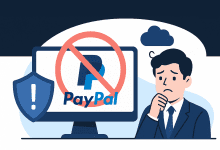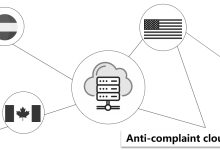What are Black Hat SEO and White Hat SEO?
Before 2018, it was common in the replica circle to hear stories about sellers from Putian, China, driving traffic through black hat site networks to promote their replica standalone websites, earning tens of thousands of dollars per month. There were even rumors of individuals making over $100,000 in a single day during Double Eleven or Black Friday through black hat methods. These were not just myths, but real examples of wealth. While many were amazed, the industry also recognized the power and aggressiveness of this promotion method in cross-border e-commerce.

A quick Google search shows that Black Hat SEO is essentially a cheating method. Techniques include keyword stuffing, doorway pages, spam links, and hidden tactics that exploit search engine loopholes to boost rankings quickly. Black hat strategies often involve using programs to scrape search results from other categories or engines, creating pages, and placing ads on them. By creating tens of thousands—even hundreds of thousands—of pages, traffic is driven at a massive scale. My team and I even implemented similar methods a few years ago.
After understanding both White Hat and Black Hat SEO, it’s clear that White Hat SEO focuses on steady, long-term growth, while Black Hat SEO emphasizes short-term gains using cheating techniques to rapidly generate traffic. This not only harms the fairness of search engine rankings but also leads to penalties and eventual blocking.
White Hat SEO, on the other hand, follows official search engine guidelines. It’s fair, low-risk, and considered the best SEO practice in the industry. By avoiding any conflict with search engine rules, White Hat SEO ensures sustainable traffic growth without the danger of being penalized or blocked.
The Ultimate Outcomes of Black Hat and White Hat SEO
For website owners using White Hat SEO, as long as they strictly follow search engine ranking guidelines over the long term, the website’s authority will steadily increase, rankings will rise, and traffic will grow sustainably—like casting a long line to catch a big fish.
In the cross-border e-commerce replica standalone website industry, Black Hat SEO exploits search engine loopholes and uses other sites or cheating techniques to gain keyword ranking improvements. These methods are not allowed by search engines. Over time, the search engines will detect the violations and block the sites. Even so, many operators still use site networks, creating large numbers of sites. Before a site is blocked, it generates traffic; after being blocked, they move on to the next site, taking advantage of timing gaps to gain profit. Putian sellers’ methods in the past were typical examples, sometimes running hundreds or even thousands of sites simultaneously.

Some operators exploit the lag in Google’s detection of cheating to generate massive orders. I personally once used custom-built crawlers and automated scripts to drop external links in bulk, driving large numbers of orders for replica standalone websites.
The unfairness of Black Hat SEO lies in how it manipulates search results. When users search for keywords, the search engine ranks pages and displays results. With Black Hat SEO, many of the results point to the same landing page. When users click and return, they see multiple entries leading to the same page—this is the deceptive part of Black Hat SEO, intentionally misleading users to click.
Some low-level Black Hat tactics involve simply posting linked images or direct links in Facebook groups. More advanced tactics may include optimizing site code with scripts to induce clicks. Regardless of sophistication, all these actions disrupt fair search results and will eventually be penalized or blocked by search engines.
In the replica cross-border e-commerce industry, if you want to build a long-lasting business, the safest approach is to stick with White Hat SEO. Steady, long-term growth is the key to sustainability. While Black Hat SEO can deliver fast results at low cost, it is highly risky—once detected, the site can be blocked, and it’s difficult to retain quality assets over time. After several years, you may find yourself with nothing of real value. Of course, this can vary depending on individual circumstances; some Putian replica operators may disagree, as business philosophy and environment differ.
Unlike White Hat SEO, Black Hat SEO is mostly used in industries that prioritize rapid traffic and short-term gains, such as replica standalone websites or gray-market operations. Black Hat SEO requires constant adaptation because search engines continuously improve anti-cheating algorithms. Today, it is nearly impossible to succeed with Black Hat SEO. Tools like the crawlers we once developed are now useless; a single Google verification module can block all automated traffic.
In fact, generating traffic for replica standalone websites does not require Black Hat SEO. If one pursues Black Hat methods, it typically needs to be combined with a network of sites to scale effectively. For individuals or teams without solid technical skills, this approach is labor-intensive and challenging. On the other hand, White Hat SEO methods—such as backlink matrices, guest posts, and blog networks—may take longer, but the cumulative results are substantial and sustainable.
However, even with White Hat SEO, replica standalone websites face the risk of Google penalties due to the nature of counterfeit products. Once your site becomes complaint-resistant, the next challenge is avoiding de-ranking or removal. This requires careful content strategy and optimization. Observing top-ranking sites on Google’s first pages can provide valuable insights—a point I have emphasized in previous articles.
With the current sophistication of Google’s algorithms and AI, exploiting loopholes with Black Hat SEO has become nearly impossible. No matter how skilled you are, you are up against one of the most advanced global tech teams. The outcome is inevitable: short-lived gains and wasted effort.
Ready to Boost Your Replica Website’s Traffic Safely?
Start implementing White Hat SEO strategies today! Build sustainable, long-term traffic for your standalone replica website using backlink matrices, guest posts, and blog networks. Don’t risk penalties with Black Hat shortcuts—focus on growth that lasts.
💡 Tip: Subscribe to our newsletter for more in-depth guides, case studies, and actionable tips on growing your cross-border e-commerce replica business the right way.
 Custom E-commerce Solutions for High-Quality Designer-Inspired Fashion Replicas | Website Development, Dropshipping, Payment Integration for PayPal and Stripe, Ad Cloaking Services
Custom E-commerce Solutions for High-Quality Designer-Inspired Fashion Replicas | Website Development, Dropshipping, Payment Integration for PayPal and Stripe, Ad Cloaking Services



























![5 Best WordPress Themes for Replica Product International Trade Websites [Recommended]-Custom E-commerce Solutions for High-Quality Designer-Inspired Fashion Replicas | Website Development, Dropshipping, Payment Integration for PayPal and Stripe, Ad Cloaking Services](https://replicasmaster.com/wp-content/uploads/2025/06/1-1-220x150.jpg)
